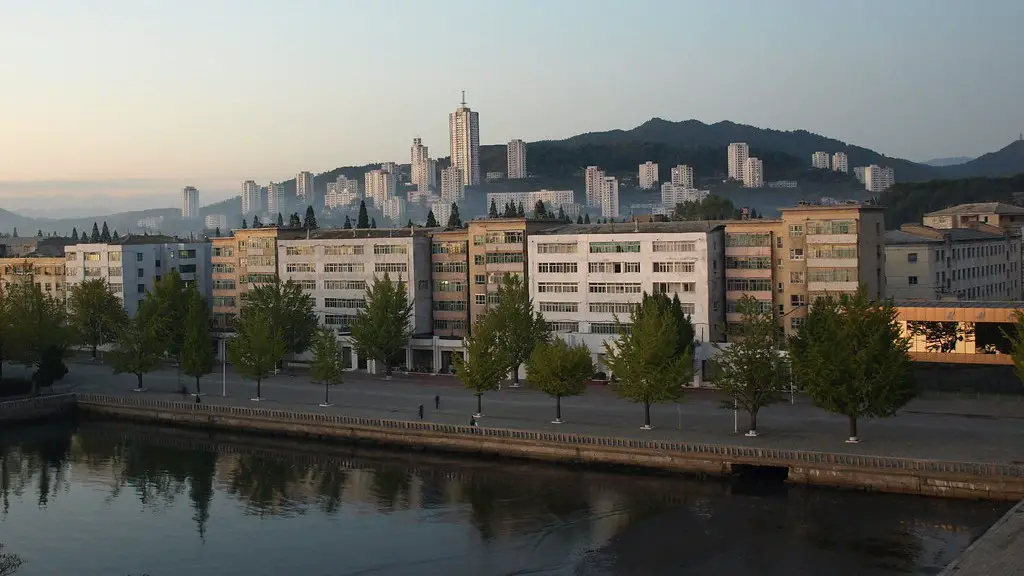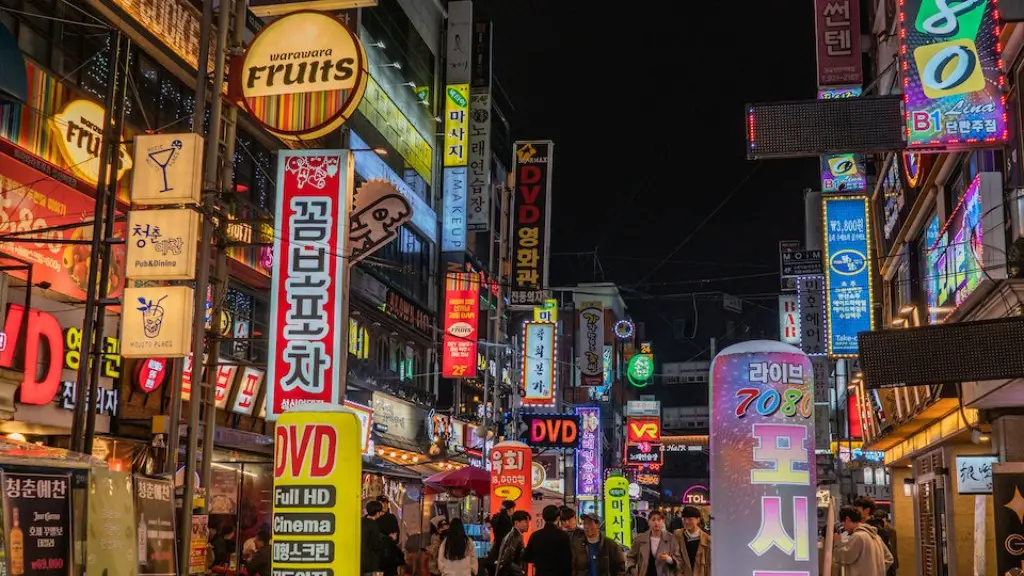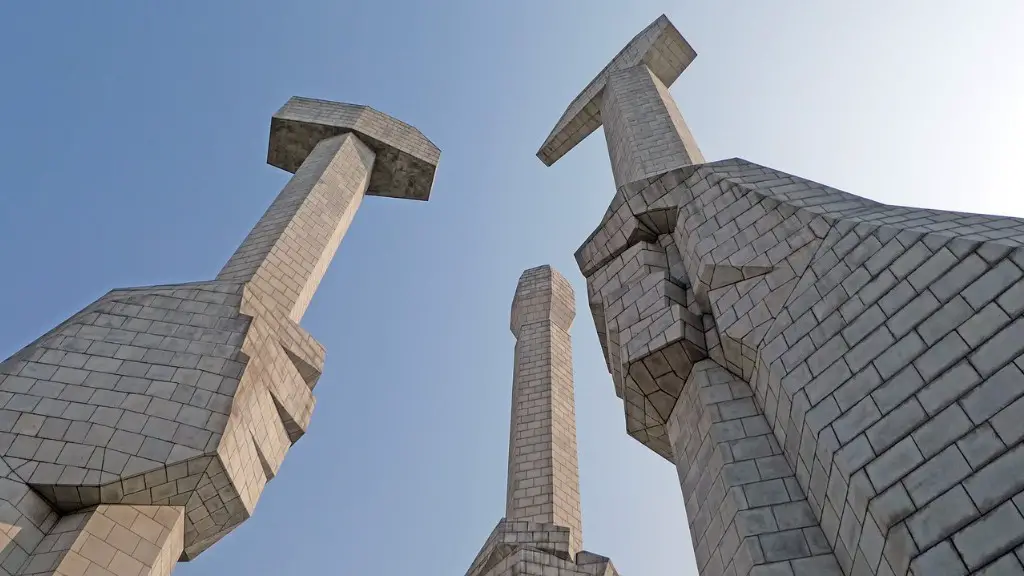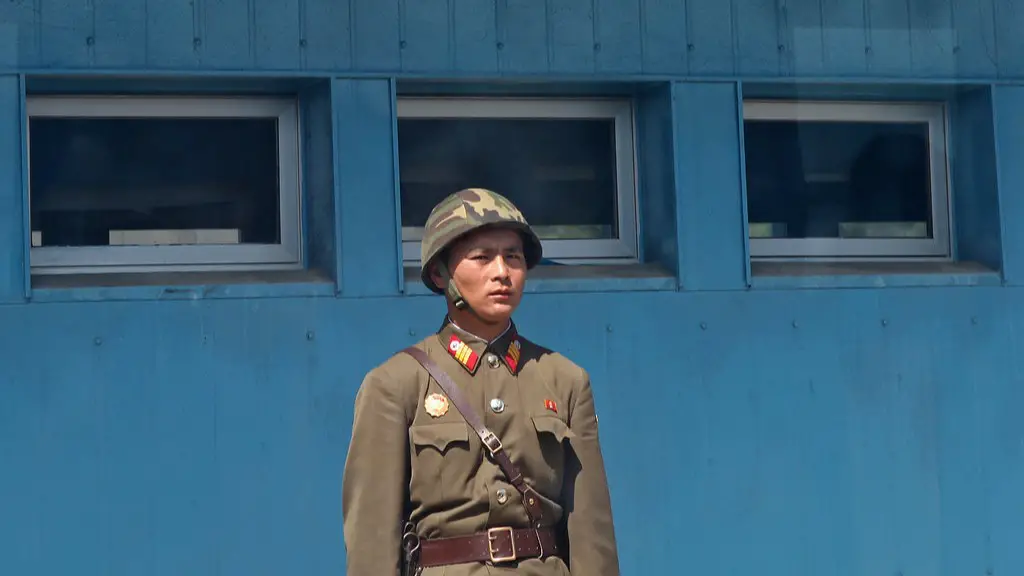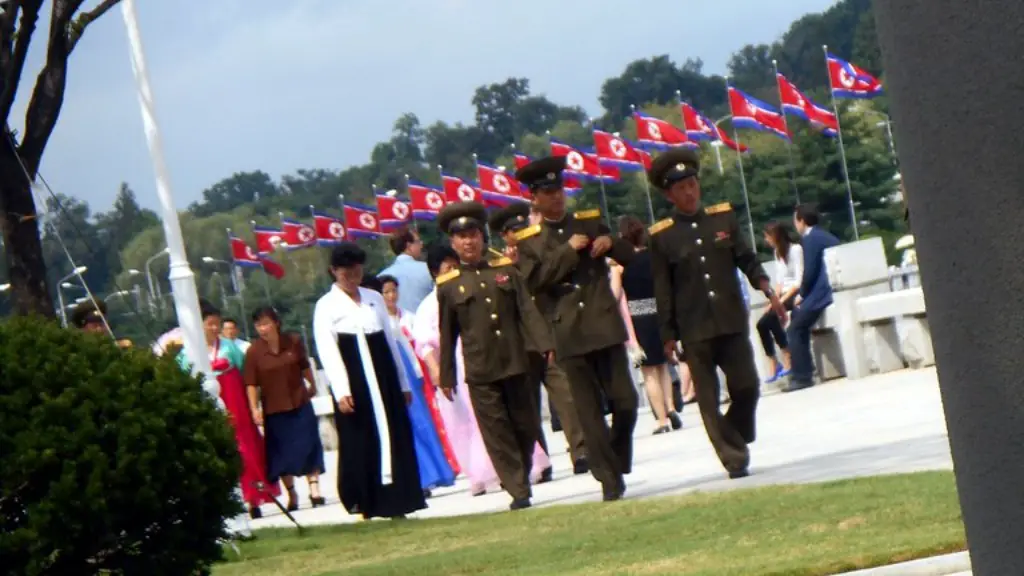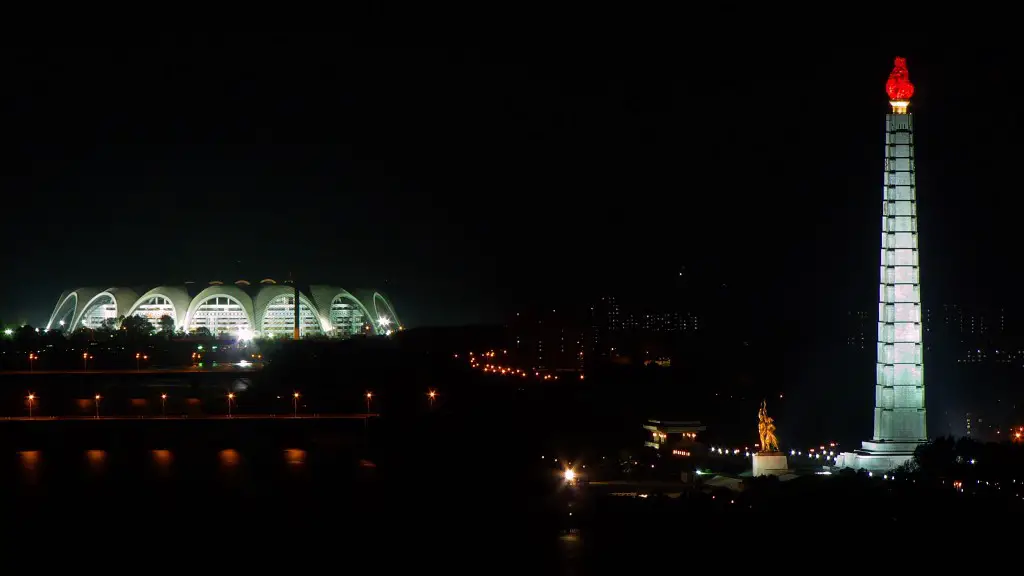North Korea is a mysterious and isolated country, which has predominantly been seen in the international arena as a source of threats and tensions. Many questions arise when discussing this secretive nation, and a prominent one is ‘Is North Korea really a threat?’ The answer to this question depends on various interpretations and opinions.
Experts suggest that North Korea is a threat in terms of the high levels of militarization in the country, and their focus on nuclear weapon development and other military-related projects such as missiles. In 2003, North Korea withdrew from the Nuclear Non-Proliferation Treaty, and has since pursued its own nuclear disarmament programme. In 2006 and 2009, North Korea conducted two nuclear tests, and in 2017 it tested a long-range rocket, accusing the US of using provocations as a pretext for preparing for war.
The US Department of Defense issued a statement in 2014 declaring North Korea is “one of the worst human rights violators in the world”. This is due to the North’s authoritarian style of ruling, including absolute control over the media, imprisoning citizens and repressing opposition. North Korea’s oppressive regime led to a UN investigation in 2014 that revealed widespread, systematic human rights abuses.
It is argued that one of the main sources of tension with North Korea is the relationship between the US and North Korea itself. The relationship is strained by the US’ refusal to recognize North Korea as a nuclear state, its imposition of economic sanctions, and its support of military allies such as South Korea and Japan. North Korea has had numerous confrontations with these countries, and has threatened to use its weapons against them.
However, some experts view North Korea as more of a ‘rogue nation’ than a real threat. They argue that North Korea’s nuclear arsenal is limited and that the country is not prepared to launch a large-scale, all-out attack. They also suggest that North Korea’s main goal is not to start a war, but to use its military capabilities to gain attention, respect and influence in the international arena and to secure its own security.
The reality is that it is difficult to know who is right and who is wrong with regards to North Korea. It is clear that North Korea has the capacity to cause serious damage, but it is also true that its military capabilities are limited and should be viewed with caution and restraint. It is therefore essential to carry out a balanced assessment of North Korea’s capabilities and intentions to assess its true threat level.
North Korea’s Relationship with China
China is North Korea’s closest ally and has an essential role in controlling tensions in the region. China is one of the few countries that has diplomatic relations with Pyongyang, and it is arguably a major influence on the country’s policies. China and North Korea remain supportive of each other, and the US has repeatedly called on China to put pressure on North Korea to abandon its nuclear weapons programmes.
North Korea is heavily reliant on China for access to resources such as food, fuel and money. Beijing has been accused of turning a blind eye to some of the North Korean regime’s abuses, and even of propping up the Kim’s regime with diplomatic and economic support. While some believe China provides a restraining influence, others suggest that it enables North Korea’s nuclear aggression by providing political and economic support, and by not taking a strong stance against North Korean actions.
The US has relied heavily on China to help manage tensions with North Korea, but in recent years the Trump administration has shifted its focus to developing a more comprehensive and collaborative strategy with other world leaders. Next year when Biden takes office, we will see if the US will review China’s involvement.
The relationship between North Korea and China is multifaceted, and it is difficult to make conclusive statements about the nature and extent of China’s influence on North Korea’s policies. What is clear is that China plays a major role in the region and is likely to continue to do so in the foreseeable future.
North Korea’s Role in the Regional Security Landscape
In the regional security landscape, North Korea’s presence is significant and can have both positive and negative effects. On the one hand, some experts suggest that its presence offers stability, as the presence of a nuclear armed state in the region means other countries will have to take its security interests into consideration. On the other hand, North Korea’s possession of nuclear capabilities gives it an advantage over its neighbours and can be used as a form of political leverage.
The presence of North Korea in the regional security landscape can also increase the risk of conflict and destabilization, as North Korea has the capabilities to cause serious damage if it applied the use of its weapons systems. In addition, North Korea’s unwillingness to engage in dialogue with other countries and its provocative behaviour have caused increasing tensions in the region, leading to greater insecurity and instability.
For decades, South Korea and Japan have been in heated dispute over the Dokdo/Takeshima islands that South Korea currently occupies. North Korea’s presence and harsh rhetoric towards both countries has exacerbated the dispute and made it difficult for the two sides to find a resolution. In recent months, North Korea has also conducted live fire military drills in close proximity to South Korea and Japan, which has further increased tensions.
Given that North Korea is surrounded and partly blocked by major powers such as China, Japan and South Korea, its presence in the region is likely to remain for the foreseeable future. As a result, it is important for the international community to remain engaged and active in the region to help manage tensions, foster dialogue and promote stability.
The US and South Korea’s Responses to North Korea
In order to address tensions with North Korea, both the US and South Korea have employed a range of strategies, including negotiation, sanctions and military build-up. In 2018, the US and South Korea signed a new agreement on military cooperation that includes the deployment of an advanced missile defence system in the South.
The US and South Korea have also imposed several rounds of international sanctions on Pyongyang, and both countries are committed to maintaining pressure on North Korea until it abides by international nuclear disarmament requirements. However, these sanctions have had limited success, as North Korea continues to defy the international community and pursue its nuclear ambitions.
In recent years, there have been several rounds of negotiations between North Korea, the US and South Korea, but none of these have been successful in achieving a breakthrough. President Trump’s summit with North Korean leader Kim Jong-un in 2018 in Singapore was seen as a positive development, but the talks have since stalled.
The US and South Korea have also expressed a willingness to hold peaceful talks with North Korea to reduce tensions, but these efforts have been met with limited success. North Korea has often expressed its willingness to engage in talks, but it insists on being recognized as a nuclear power and does not appear willing to make significant compromises.
The Road Ahead: Prospects for De-Escalation and Resolution?
Ultimately, North Korea’s true intentions and capabilities remain shrouded in mystery. It is clear that North Korea poses a real threat in terms of its military capabilities and violations of human rights. However, it is also true that North Korea’s nuclear ambitions are limited and the country is not prepared to launch an all-out attack.
In the coming months and years, continued engagement, dialogue and diplomacy are essential to try to resolve tensions between North Korea, the US, South Korea and other countries in the region. It is also important to remember that resolving the conflict will require a multi-pronged approach from all parties involved.
The US and the international community must focus on finding a way to convince North Korea to abandon its nuclear ambitions, while it must also focus on improving living standards in the country and helping to foster a more open and democratic society.
Ultimately, the best way forward is for the international community to remain vigilant and engaged with North Korea, while also working to foster a more cooperative relationship with the country. It is a delicate balance, but it is essential if we are to manage tensions and strive for peace in the region.
